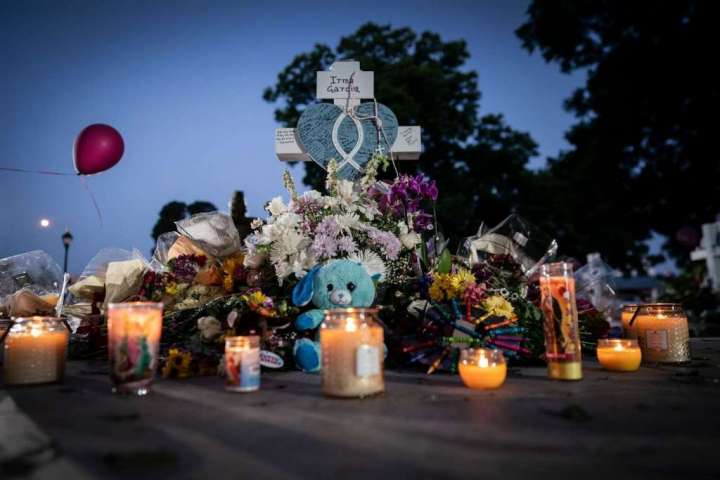“When in God’s name are we going to stand up to the gun lobby?” President Biden asked on Tuesday in the wake of the horrific mass murder of 19 students and two teachers in Uvalde, Tex.
Let’s focus more on why people kill than what they use to do it

Sen. Elizabeth Warren (D-Mass.) tweeted, “It’s heartbreaking and sickening how routine mass shootings have become in America. … The Senate must pass gun safety legislation and protect our children.”
Editorial pages and columnists almost uniformly echoed that line of thinking. And those increasingly viewed as the moral leaders of our nation — professional athletes and coaches, entertainers and talk show hosts — chimed in to rip Republicans and insist on more gun legislation. In fact, the entire Miami Heat organization had its stadium announcer urge fans gathered for a playoff game to call lawmakers and “leave a message demanding their support for common-sense gun laws.”
What’s striking about the examples above is that none included any mention of — or even allusion to — the person responsible for the carnage. For the record, he was Salvador Ramos, an 18-year-old Uvalde resident. He’s the one who, police say, committed this atrocity before being killed by law enforcement officers. Failing to acknowledge that the massacre was a human act — even if choosing not to name the killer to avoid a “contagion effect” — misdirects us into focusing on the means of the killing rather than the perpetrator.
Yes, cold, hard political calculations are at play in focusing on gun control. But also evident is an unspoken sense of helplessness that is at odds with a natural desire to convince ourselves that we are in control of our surroundings and our fate. Believing that there’s an obvious solution to something so horrific helps us cope.
The latest calls are to pass a law barring 18-year-olds from buying guns. But the El Paso Walmart shooter was 21. The Orlando nightclub mass murderer was 29. The perpetrator of the Las Vegas Strip massacre was 64. Still, maybe Republicans should give in and support banning 18-year-olds from buying guns, and support tougher background checks, so everyone can claim they did something.
Biden pondered why massacres are more prevalent in the United States than in other countries that also have “people who are lost” and suffer from mental illness. In fact, the notion that gun violence happens disproportionately here is misleading. The United States has only the 32nd-highest rate of deaths from gun violence in the world, according to the latest statistics from the Institute for Health Metrics and Evaluation.
But we’re a developed, industrial country, people respond, and experts say countries with higher gun violence tend to be places in Central America and the Caribbean beset by gangs and drug trafficking, and by political and economic turmoil. Those things aren’t growing problems here? Anyone who worries about gun violence in the United States should be equally concerned that we have the highest drug death rate in the world, since drugs and gun violence go hand in hand.
Still, Biden’s question is a human one. We all ask it. Why? Motives are usually proffered for the actions of mass murderers, but the reasons are often resentments or hostilities that are felt by countless thousands who don’t act out violently. What separates most people from the handful whose minds travel to such a dark place that violence and carnage are the result?
Theories abound, and they are embraced to different degrees depending on political or social divides. A macho gun culture? An entertainment industry that celebrates violence and portrays it too realistically? Mental illness ignored and improperly treated? Economic anxiety? The spiritual vacuum of a nation drifting further from God?
These are hard questions, but to raise them is often to invite ridicule from those who want to blame guns and only guns.
No one has an answer on which we all can agree. Coming together is hard. Crafting new gun restrictions, difficult as that might be, is easier than delving into the truth that our gun violence problem has its roots in a people violence problem.
Addressing what truly ails us won’t happen in a week or a month with the stroke of a pen on a shiny new piece of legislation. Instead, it requires something unlikely to happen — a bipartisan dialogue, with a willingness by each side to consider the other side’s position. Politics is the art of compromise, and compromise is the art of agreeing to things you don’t always believe in. Anyone care to lead?






